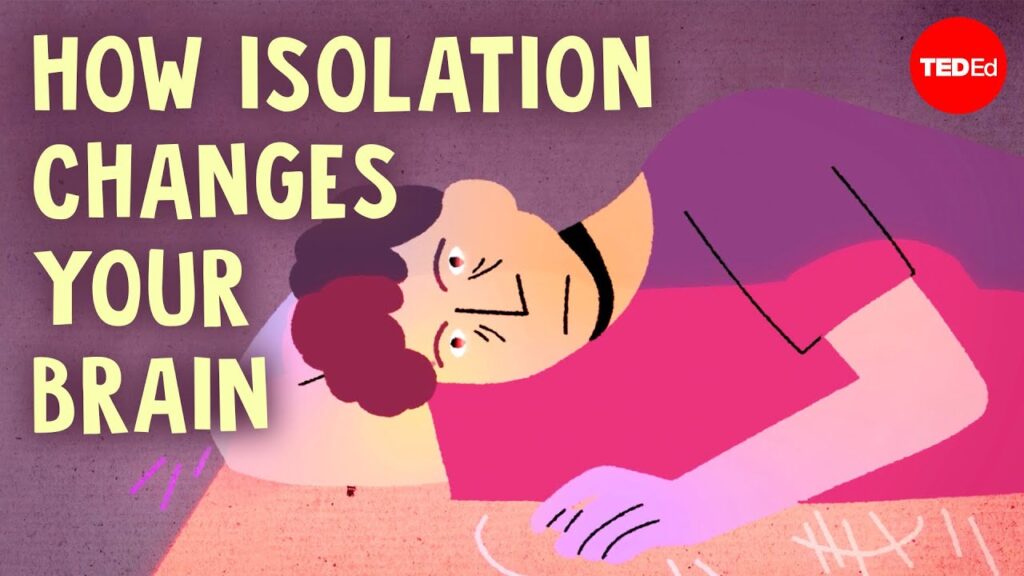
"To many of us, the con­cept of soli­tary con­fine­ment may not sound all that bad: final­ly, a reprieve from the siege of social and pro­fes­sion­al requests. Final­ly, a chance to catch up on all the read­ing we've been mean­ing to do. Final­ly, an envi­ron­ment con­ducive to this med­i­ta­tion thing about whose ben­e­fits we've heard so much. (Per­haps we made those very assur­ances to our­selves when the COVID-19 pan­dem­ic set in.)"
"Unsur­pris­ing­ly, per­haps, iso­la­tion takes its great­est toll when imposed against the will of the iso­lat­ed, and even more so when imposed for an indef­i­nite dura­tion. "Ear­ly on, stress hor­mones may spike, and as time pass­es, that stress can become chron­ic," says the video's nar­ra­tor. With­out the avail­abil­i­ty of social inter­ac­tions as "a sound­ing board where we can gauge how ratio­nal our per­cep­tions are," one's "sense of iden­ti­ty and real­i­ty becomes threat­ened.""
Prolonged social isolation, especially when involuntary or indefinite, elevates stress hormones that can become chronic. The absence of social feedback prevents people from gauging how rational their perceptions are and undermines a stable sense of identity and reality. Isolation increases risk of depression, obsessive thinking, suicidal ideation, and for some individuals, delusions and hallucinations. Sleep disturbances commonly arise and physical symptoms such as heart palpitations may follow. Short-term solitude may feel appealing for reading or meditation, but the cumulative psychological and physiological harms typically outweigh those perceived short-term benefits.
Read at Open Culture
Unable to calculate read time
Collection
[
|
...
]